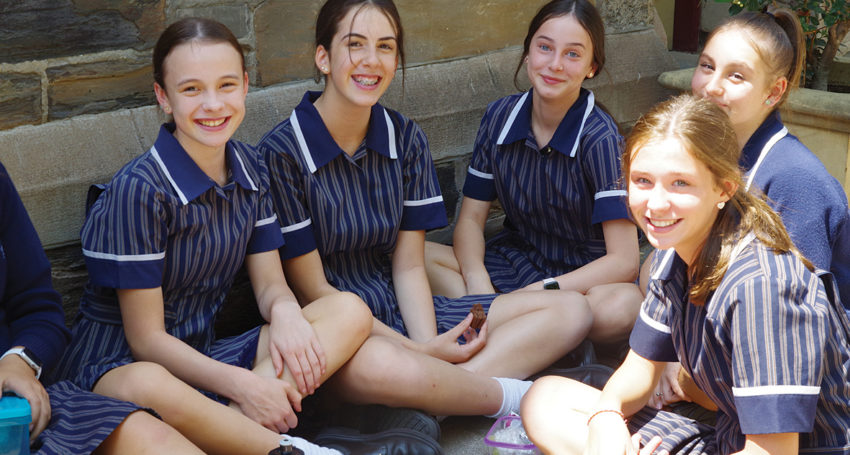Lunchtime laughter as phones go silent
Schools
A walk around the yard at St Mary’s College during recess and lunchtimes this term has been a completely different experience for principal Clare Nocka – and one that has brought her immense joy.

Rather than seeing students with their heads buried in their phones, Ms Nocka is now hearing girls chatting and interacting with each other.
In what she describes as the “most significant change” on the day-to-day lives of students since she took over the leadership role almost three years ago, St Mary’s has implemented a policy which calls for a ‘phone-free environment’ in the school yard.
While acknowledging that mobile phones are a “part of modern life” and students need to learn to “manage them and be responsible for their use”, Ms Nocka said the new policy means students can now connect without the “disruptive” presence of phones.
Advertisement
“What we’re doing in break times now is focusing on building face-to-face relationships,” Ms Nocka said.
“I think it has been a really good culture shift and it aligns beautifully with our restorative culture which has relationships at the heart.”
St Mary’s decided to review its previous ‘open policy’ to mobile phones following media coverage of ‘significant issues’ in some school sectors in Australia.
“We noticed increasingly as we walked through the yard at recess and lunchtime there were groups of girls with their heads in their phones. There was no interaction,” Ms Nocka explained.
“Small groups of teaching staff had already started to develop their own year level response to the use of mobile phones because they noticed the phones were becoming disruptive in learning spaces.”
The leadership team explored current research, learnt from the approaches of other schools and sought feedback from parents, students and staff in the development of the policy.
“There are really good views about why to have an open policy and really good views about why to ban phones,” Ms Nocka said.
Advertisement
“In the end we were swayed by some of what we were reading about the mental health and developmental impacts of phones. We educate young people about drugs and alcohol and healthy lifestyles and this is part of it.”
Under the new approach, junior school students are required to hand mobile phones to their Care Group teacher at the start of the day and they are returned at dismissal time.
Middle school and senior school students are asked to turn off notifications, turn their phone to silent and store them in their lockers at the start of the day. Ear buds must also be stored in lockers and messages to smart watches turned off.
With teacher permission, phones can be brought to class as a tool for learning. Phones can also be checked quickly at recess and lunch if there are messages about work, after school commitments or pick up arrangements.
Year 12 students can use their phones during break times in the Veritas Centre, but no phones are allowed into the school yard.
Ms Nocka said the response from parents to the policy had been “overwhelmingly positive”.
“I have never had so many emails or people approach me in the yard to say thank-you. It’s been extraordinary. I’ve also been pleasantly surprised how the students have adopted and run with it.”








Comments
Show comments Hide comments